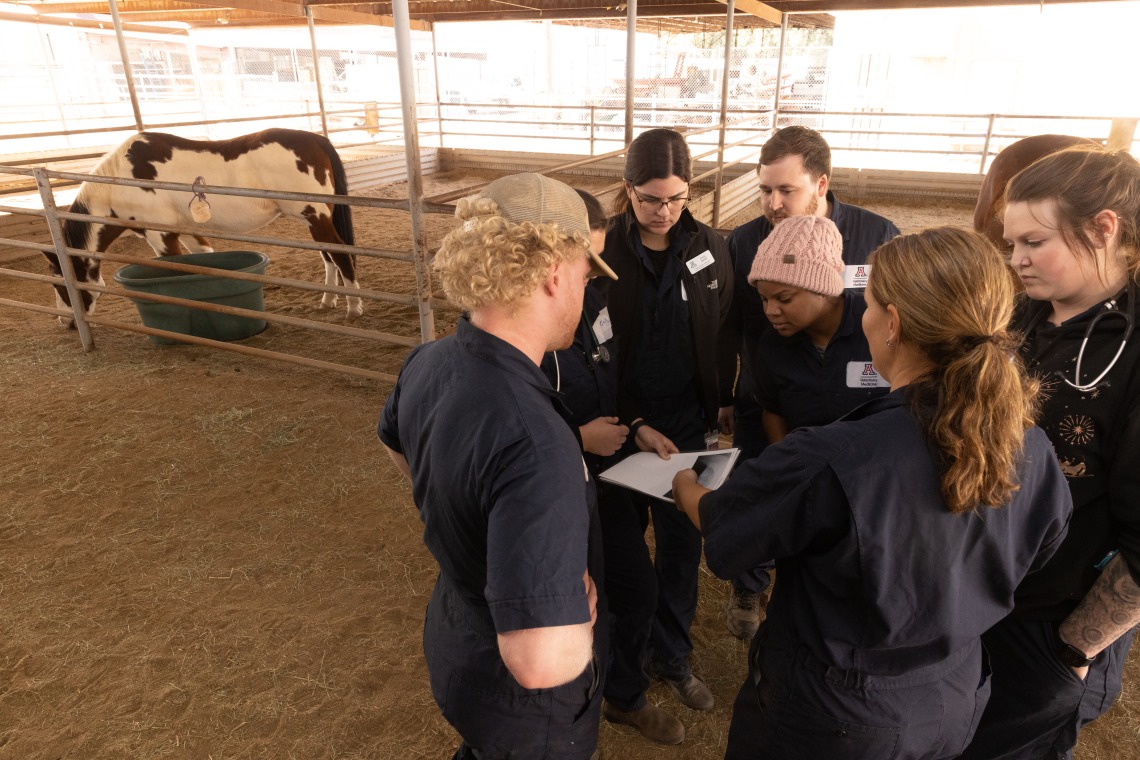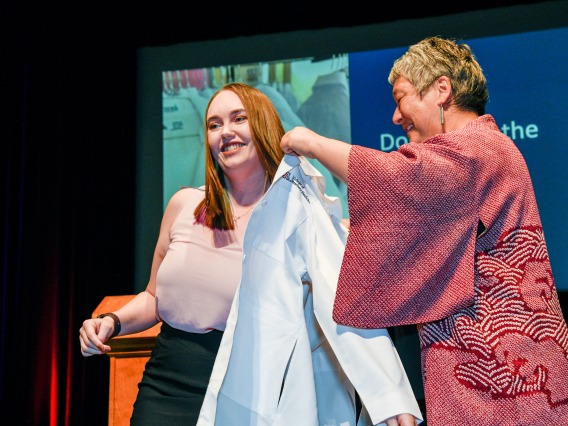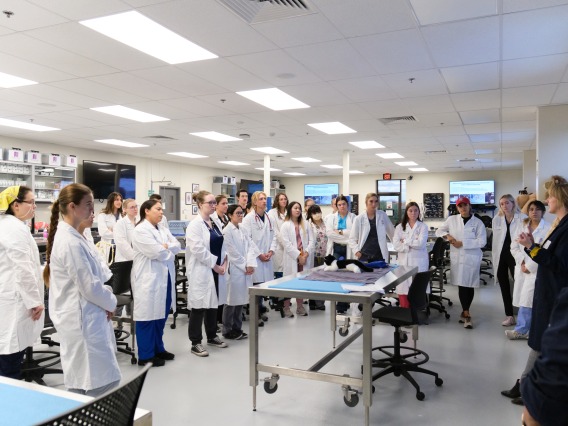Start your veterinary journey in Southern Arizona.
Apply today and begin your journey towards a rewarding and impactful career in veterinary medicine at a top-tier institution committed to your success.
Embracing the Future of Veterinary Medicine
Explore the future of veterinary education with the University of Arizona College of Veterinary Medicine's innovative program, tailored for the next generation of professionals. Progressive hands-on learning, a student-centered curriculum, and team-based training take students out of the classroom and prepare them for real-world practice.
upcoming events
Prospective Students
Our admissions process focuses on assessing candidates as unique, multidimensional individuals. We consider the academic and personal history and an applicant’s overall fit with our mission and values.
What sets our program apart from traditional training?
Arizona College of Veterinary Medicine breaks the mold of traditional programs by taking a whole-person approach to training the industry's future leaders.
Innovative Curriculum
The classroom is anything but typical. It’s where you will learn hands-on how to make decisions in critical scenarios and where you will make connections with industry leaders to launch your career.
Health & Wellness
We take a holistic approach to each student, providing access to learning support and health and wellness resources that empower our students to live balanced lives.
Diversity, Equity & Inclusion
We are committed to fostering an inclusive environment throughout the college to build and sustain a culturally responsive community.
Latest News
Stay Connected With Us
Sign up for our VetCat Insider Newsletter and get the most up-to-date information about our program.








